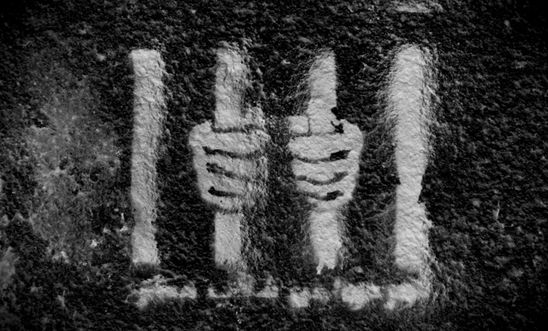
Press releases
Egypt: activists trapped in 'revolving door' of arrest and re-arrest

Al Jazeera producer among those immediately re-detained despite court ordering his release
Arrested on fabricated charges, journalists and activists made to languish for years in pre-trial detention
‘Years of arbitrary detention is beyond cruel for both victims and their families’ - Najia Bounaim
Amnesty International has condemned the Egyptian authorities’ “revolving door” practice of re-imprisoning activists, journalists and others after their release from detention is ordered by judges.
Amnesty has documented the cases of five prominent individuals in which the country’s Supreme State Security Prosecution have bypassed court-ordered releases by immediately imprisoning them on fabricated charges.
Based on interviews with lawyers and family members, and an examination of media statements and video footage, Amnesty has documented a clear pattern where soon-to-be-released detainees are brought before the prosecution authorities and charged with fresh offences, using the same or similar charges, and imprisoned once again.
This mirrors a Mubarak-era practice where police frequently ignored court decisions ordering prisoner releases by using emergency powers to detain people indefinitely without charge or trial. The provision allowing such administrative detention was struck down by Egypt’s Supreme Constitutional Court in 2013.
In a very recent case, instead of complying with a court order to release Ola al-Qaradawi, daughter of the cleric Youssef al-Qardawi on 3 July, the Supreme State Security Prosecution ordered her detention in another - unfounded - case a day later. She was re-detained for “membership of a terrorist group” and “funding a terrorist group through her connections in the place of detention”, despite having been in solitary confinement for the entirety of her detention.
Al-Qardawi was originally detained on 30 June 2017 - along with her husband Hossam Khalaf - on trumped-up charges, including being a member of a “terrorist group”. She was held in prolonged solitary confinement in conditions amounting to torture. Amnesty believes her detention is arbitrary and that she is being targeted because of her father’s Muslim Brotherhood connections. Ola al-Qardawi began a hunger strike after being returned to solitary confinement last week.
Najia Bounaim, Amnesty International’s North Africa Campaigns Director, said:
“The Egyptian authorities’ practice of re-ordering the detention of detainees on blatantly fabricated charges just as they are about to be released is an alarming trend that illustrates the extent of Egypt’s decayed justice system.
“This unlawful practice has seen detainees who were already detained on spurious grounds trapped in the ‘revolving doors’ of Egypt’s arbitrary detention system, as part of a deliberate ploy to prolong their detention.
“Refusing to release arbitrarily detained individuals as their families are waiting to embrace them, following months or years of arbitrary detention, is beyond cruel for both victims and their families.
“The Egyptian authorities must immediately and unconditionally release Ola al-Qardawi, Mahmoud Hussein, Somia Nassef and Marwa Madbouly and all others detained solely for exercising their right to freedom of expression, association and assembly.”
Al Jazeera producer among those re-detained
In another prominent case, Al Jazeera producer Mahmoud Hussein has been arbitrarily detained since 23 December 2016 for his journalistic work. The Supreme State Security Prosecution charged him with “membership in a terrorist organisation”, “receiving foreign funding” and “publishing false information” in a hearing without a lawyer, and ordered his pre-trial detention pending investigations. Throughout his two-and-a-half-year detention - which surpassed the two-year maximum for pre-trial detention under Egyptian law - he was only questioned once, soon after arrest.
On 21 May this year, a judge ordered Hussein’s release on probation, with the authorities moving him to Abu el-Nomrs police station in Giza governorate ahead of release. However, on 28 May the prosecution authorities charged him with “membership of a banned organisation” and other offences, and ordered his re-detention.
Others targeted include Somia Nassef and Marwa Madbouly, who were arrested over their peaceful activism on 31 October 2018 as part of a crackdown on human rights defenders. They were subjected to enforced disappearances for three weeks and tortured, including through beatings and electric shocks.
The two appeared before the Supreme State Security Prosecution and were detained pending investigation for “membership in a terrorist group” and “receiving foreign funding”, before being held - incommunicado - for two months. They were then transferred to Qanatar women prison in January, before a judge ordered their release on probation on 25 May. However, once again the prosecution authorities charged them with “membership of a terrorist group” and “receiving foreign funding”.